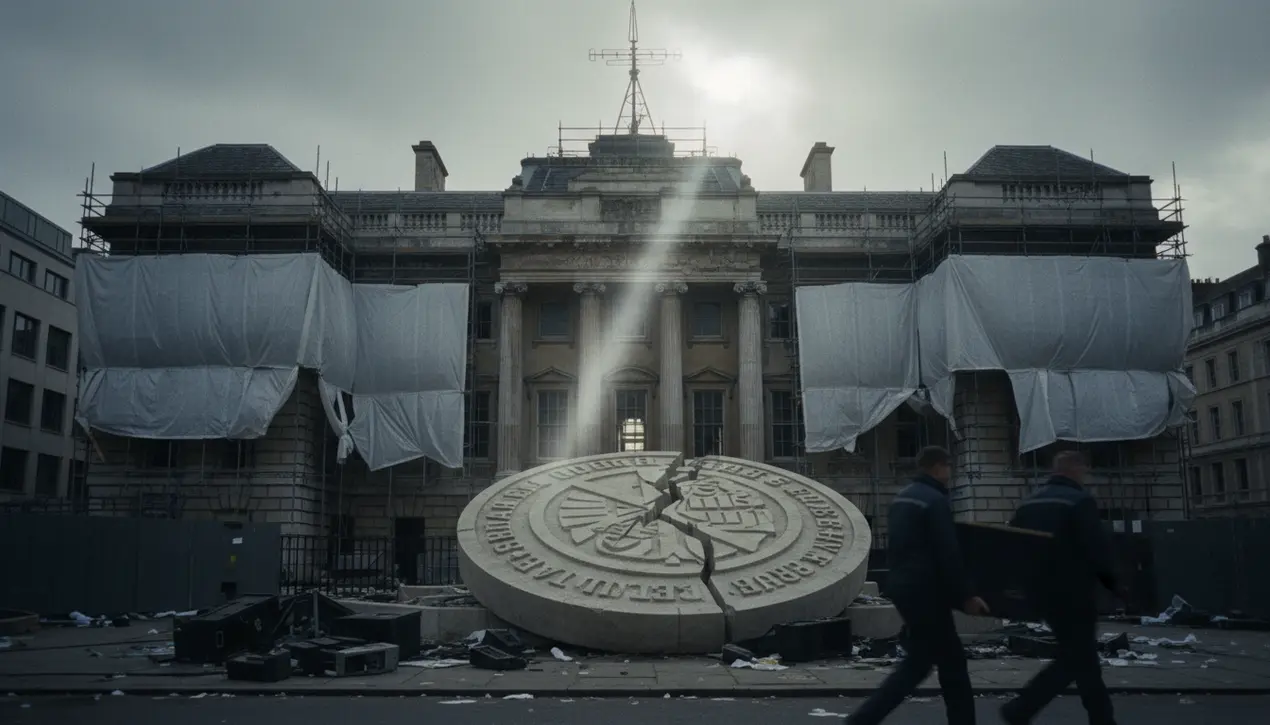
Politicsgovernments & cabinetsScandals and Resignations
BBC's Ongoing Crisis Threatens Its Future and Public Trust
RO
Robert Hayes
5 hours ago7 min read1 comments
The venerable British Broadcasting Corporation, an institution that has for a century stood as a global bastion of public service broadcasting, now finds itself navigating its most treacherous political and existential crisis since its founding. The BBC's ongoing turmoil, a compound fracture born of its own internal stumbles and the ceaseless, calculated hostility from the political right, threatens not merely its operational funding model but the very bedrock of public trust upon which it was built.This is not a simple skirmish; it is a protracted war of attrition, reminiscent in its strategic contours of the historical battles fought by other public institutions when they found themselves crosswise with populist movements. The broadcaster’s recent, high-profile editorial missteps—handling of sensitive stories, perceived biases in political coverage—have provided ample ammunition for its detractors, who have long viewed the BBC not as a national treasure but as an embodiment of a liberal metropolitan elite out of touch with the heartland.This relentless pressure, echoing the kind of political onslaught that has crippled public broadcasters in other nations, creates a perilous feedback loop: each controversy weakens public confidence, which in turn emboldens political calls to dismantle or radically defund the institution, further eroding its mandate. The strategic objective of these attacks is clear—to gradually sever the symbiotic relationship between the broadcaster and the license-fee-paying public, creating a permission structure for its eventual diminishment.One cannot analyze this without recalling the parallels to the slow-burn dismantling of other public assets, where death by a thousand cuts preceded a fundamental restructuring. The consequence of this path is not merely a different media landscape but a profound shift in the democratic fabric of the United Kingdom.The BBC, for all its flaws, has historically functioned as a central plaza for national conversation, a common ground with a mandate for impartiality. Its weakening creates a vacuum that will inevitably be filled by fragmented, commercially-driven, and overtly partisan outlets, deepening societal polarization. The question now is whether the corporation’s leadership possesses the strategic foresight and political acumen of a Churchill in its darkest hour, capable of a fundamental internal reckoning to restore editorial rigor while simultaneously mounting a robust, principled defense of its public service mission against an existential threat that questions its very right to exist in its current form.
#editorial picks news
#BBC
#public broadcaster
#right-wing hostility
#governance crisis
#media trust
#institutional challenges
Stay Informed. Act Smarter.
Get weekly highlights, major headlines, and expert insights — then put your knowledge to work in our live prediction markets.
Comments
Loading comments...
© 2025 Outpoll Service LTD. All rights reserved.